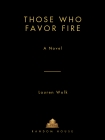Those Who Favor Fire by Lauren Wolk (no david read aloud TXT) 📗

- Author: Lauren Wolk
Book online «Those Who Favor Fire by Lauren Wolk (no david read aloud TXT) 📗». Author Lauren Wolk
First, the step. She had all the time in the world to feather her nest. “Just keep your distance,” she said softly, looking out toward the horizon where a thread of smoke wavered like a cobra. Then she turned her back and went about her business.
Chapter 12
After leaving Frank’s Gas ’n’ Go, Joe pedaled over to the A&P. He hadn’t ridden a bicycle for ages and felt such a sense of liberation as he flew down the streets of Belle Haven that he waved to an old woman sitting on a bench in the sun.
Since the Schooner’s stern was equipped with a bike rack, it took Joe no more than a minute to stow his new transport and get under way. He had no good reason to linger in town: no money to spare, no errands to run, no appointments to keep. And, considering how small Belle Haven was, he was loath to do any more exploring than he’d already done. He would save the rest for the days that waited ahead, empty as drums.
Once back at the campsite, Joe parked the Schooner as before. With the bicycle Rachel had lent him, he probably wouldn’t have to drive it for days—if his father came to fetch him, perhaps not ever again. He paused to consider this idea, to plumb its depths, then briskly disembarked and began to make a less impermanent camp.
First, he unfurled the Schooner’s red-and-white striped awning and was relieved to find it clean and intact. Under the awning and next to a flat-topped tree stump, he set up the cheap lawn chair he’d bought in town. Then he mixed himself a glass of instant iced tea and carried it outside. The chocolate bar he’d bought at Frank’s and carried home in his shirt pocket was soft and warm. He ate it slowly, sipping his cold tea, and stared at the sunlight on the stream. With the exception of a damaged cuticle, his entire body felt marvelous. He was aware of each breath lifting his chest, the smooth, uncomplicated function of his elbow, the way his brilliantly designed toes lay alongside one another and how the lenses of his eyes—the miracle of his eyes—brought to him so unerringly the majesty of the trees.
For the rest of the morning, Joe did nothing more than putter around his Schooner and make it more his own. He took an empty pop bottle and filled it with stream water and Queen Anne’s lace for the sill of his kitchen window. He read the side panel of his carton of laundry soap, measured out what he needed, and washed his clothes in his new laundry tub. Then he rinsed them well and pegged them to the line he’d hung between two obedient pines in the middle of the sunny clearing.
For his lunch he had two bacon sandwiches with a cold bottle of beer, washed up his frying pan and dishes, dried them and put them away. He wiped the crumbs off his kitchen counter, squeezed out his sponge, dried his hands on a crisp tea towel, and hung it on a rack to dry. He dusted every surface, shook out the door mat, swept the Schooner’s steps, and opened all the windows to let the breezes through. When he stumbled across the letter he had scribbled to his father the day before, Joe was taken aback. It still said what he wanted to say, but he was no longer so eager to make contact. In a week or so he would find a phone and courage enough to call home. Until then, he didn’t much want to think about what he’d done or what he would say when his father answered the phone. He stuffed the letter into the glove compartment, slammed the door, and forgot about it.
At one-thirty on the afternoon of Joe’s first full day in Belle Haven, he realized that he was both content and something akin to lonely. An early morning spent with Rachel had made the day seem unusually long and quiet. So, without thinking much about his intentions, he locked the Schooner and walked through the woods to Ian’s house.
“Good afternoon,” Ian said when Joe knocked on his back door. “How you making out?”
“Fine,” Joe replied, smiling. “Feel like taking a walk?”
So the two of them strolled out across the fields that ringed the campground, wended their way through stands of pine and birch, and finally sidled up to a small hot spot that had opened in the bottom of a shallow ditch like a drain hole filled with flame.
“Yikes,” said Joe, appalled. “I can understand why people stopped coming here to camp.”
“That’s nothing. You can’t even get near the big ones, they’re so hot. And they can come up so fast that even when you’re well clear of the tunnels it’s impossible to know where it’s safe to camp. Except where you are,” he amended quickly, seeing the look on Joe’s face.





Comments (0)